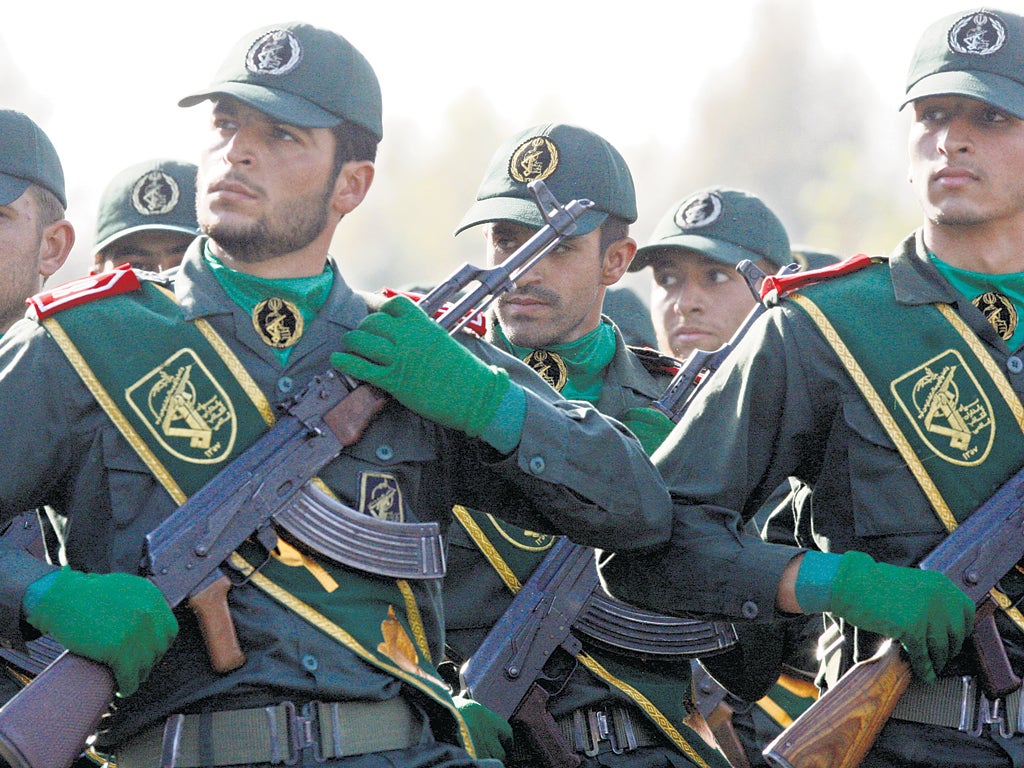Drums of war beat louder as Iran and Israel step up rhetoric
Evidence is mounting that Washington believes an Israeli attack on Iran is now only a matter of time.

Iran's supreme leader threatened to attack Israel yesterday in retaliation for Western sanctions against the Islamic Republic, warning that "threatening Iran and attacking Iran will harm America". Ayatollah Ali Khamenei's declaration came as apprehension of possible conflict was intensified by a report suggesting that the US Defense Secretary, Leon Panetta, believes Israel could strike nuclear targets in Iran before the summer after concluding that military action might be needed before it was "too late" to stop Tehran's nuclear programme.
The Ayatollah used a televised sermon to warn that threats of war – which would be "ten times against the interests of the US itself" – would not deter Iran from its "nuclear course". And he declared the Tehran regime's backing for "any nation or group" that wants "to confront and fight" against Israel. He also said that Tehran was seeking to "extract a price" from Israel for the assassination of four nuclear scientists since November 2010.
The threat from Iran is apparently being taken seriously in Israel. Yoram Cohen, the head of the domestic intelligence agency Shin Bet, was reported as having told a closed meeting in Tel Aviv this week that Iran was seeking to strike Israeli targets around the world in an attempt to stem the assassinations of scientists.
Mr Cohen was quoted by the liberal newspaper Haaretz as having cited "three serious attacks" since last summer that had been thwarted as they were "on the verge of being carried out," against the Israeli consul general in Istanbul, in Baku, Azerbaijan, and two weeks ago in Thailand.
The Shin Bet head said that Iran believed Israel was behind the attacks on its scientists and added: "It doesn't matter if it's true or not that Israel took out the nuclear scientists. A major, serious country like Iran cannot let this go on. They want to deter Israel and extract a price so that decision makers in Israel think twice before they order an attack on an Iranian scientist."
The main media focus in Israel, however, were the fears attributed to Leon Panetta in a report in The Washington Post – which Mr Panetta has not denied – that Israel might launch a strike on Iran's nuclear plants in April, May or June before Iran enters what his Israeli counterpart, Ehud Barak, this week called the "immunity" zone.
Mr Barak has coined the term to describe the point from which Iran will have developed sufficient knowledge and material so successfully that an external attack would be unable derail any ambition it may have to attain a nuclear weapon.
The administration in Tehran have denied that its nuclear programme is for anything other than peaceful energy purposes. Speaking in Germany yesterday Mr Panetta said that "all options" remained on the table. But he said "the most important thing" was to maintain unified global support for tough economic sanctions.
The public statements followed a week of intense discussion about Iran's perceived nuclear threat at the annual conference of Israel's security establishment at the Inter-Disciplinary Centre in Herzilya. Despite unanimity among prominent intelligence, military and political leaders about the need to halt the threat, there were also strong signs of what Mr Barak in his keynote address openly acknowledged were "disagreements among us" about how to do it.
One of the emerging areas of disagreement appears to be the vulnerability of Iranian sites to bunker-buster bombing raids. The Vice Prime Minister, Moshe Yaalon, while saying that "one way or the other" the "messianic-apocalyptic" Iranian regime's "nuclear project" had to be stopped, went out of his way to reject claims that Iran's underground facilities might be invulnerable to "bunker-buster" bombs.
In remarks that appeared to run counter to Mr Barak's warning that it might soon become "too late" to attack Iran's nuclear facilities, Mr Yaalon added: "Any facility that is protected by humans can be penetrated by humans. Every military facility in Iran can be hit, and I say this from my experience as [military] chief of staff."
Equally, the current military chief of staff, Benny Gantz, did not refer to the "immunity zone", pointing instead to the strategy of "continuing to disrupt Iran's attempts to attain nuclear weapons" and adding that it was important "to continue to build strong, reliable, impressive military capabilities, and to be prepared to use them if and when the need arises".
Subscribe to Independent Premium to bookmark this article
Want to bookmark your favourite articles and stories to read or reference later? Start your Independent Premium subscription today.

Join our commenting forum
Join thought-provoking conversations, follow other Independent readers and see their replies